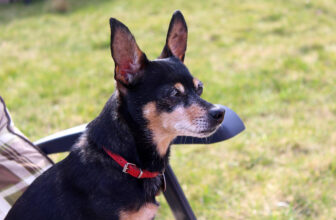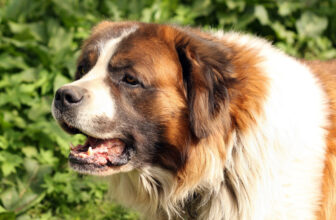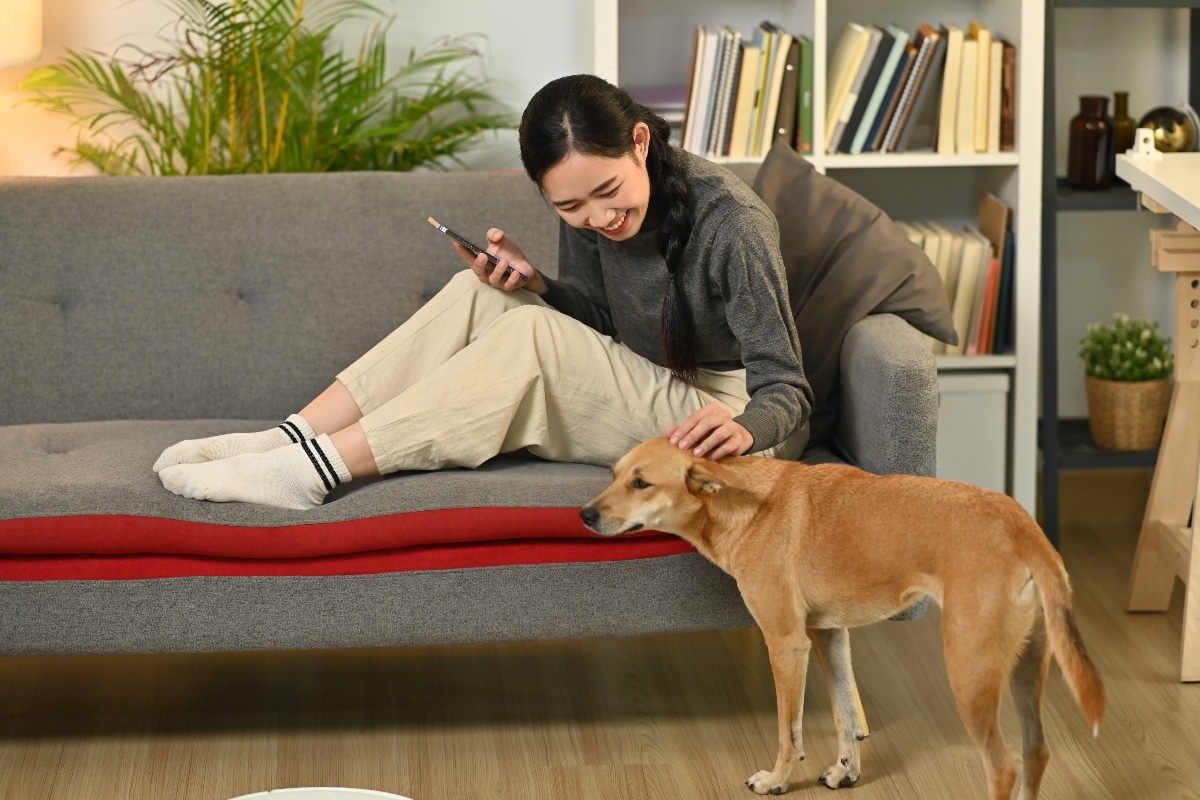
Check out our latest products
Shutterstock
Dogs aren’t just furry roommates—they’re emotional lifelines, unpaid bodyguards, and clingy best friends who’d follow you straight into a zombie apocalypse (or the bathroom). Their loyalty runs deep, built over thousands of years of human partnership. It’s more than tail wags and welcome-home zoomies; it’s science-backed devotion, tearjerking true stories, and everyday moments of quiet companionship. Whether it’s a pup crossing miles to reunite with their person or gently resting a head on your lap when you’re low, dog loyalty has a way of melting even the iciest hearts.
Dogs Can Recognize Your Voice Instantly

Shutterstock
A dog’s ability to recognize its owner’s voice goes beyond basic training—it’s wired into their brains. Studies show that dogs can differentiate their human’s voice from others and respond more enthusiastically to it. This isn’t just about commands; they’re emotionally attuned to your tone and patterns. That’s why your dog bolts toward the door the second you say, “Want to go for a walk?” in your special walk-voice. Your voice is like their favorite song, always worth a tail wag.
Loyalty Can Last a Lifetime—Even After You’re Gone

Shutterstock
There are countless true stories of dogs who waited at the same spot for their deceased owners, sometimes for years. Hachikō, the famous Japanese Akita, waited at a train station daily for nine years after his owner passed away. It’s not just folklore; dogs have an emotional bond that can outlive their humans. This kind of loyalty isn’t taught—it’s instinctual. They don’t forget you, even when you’re no longer around to toss the ball.
Dogs Prioritize Their Humans Over Food
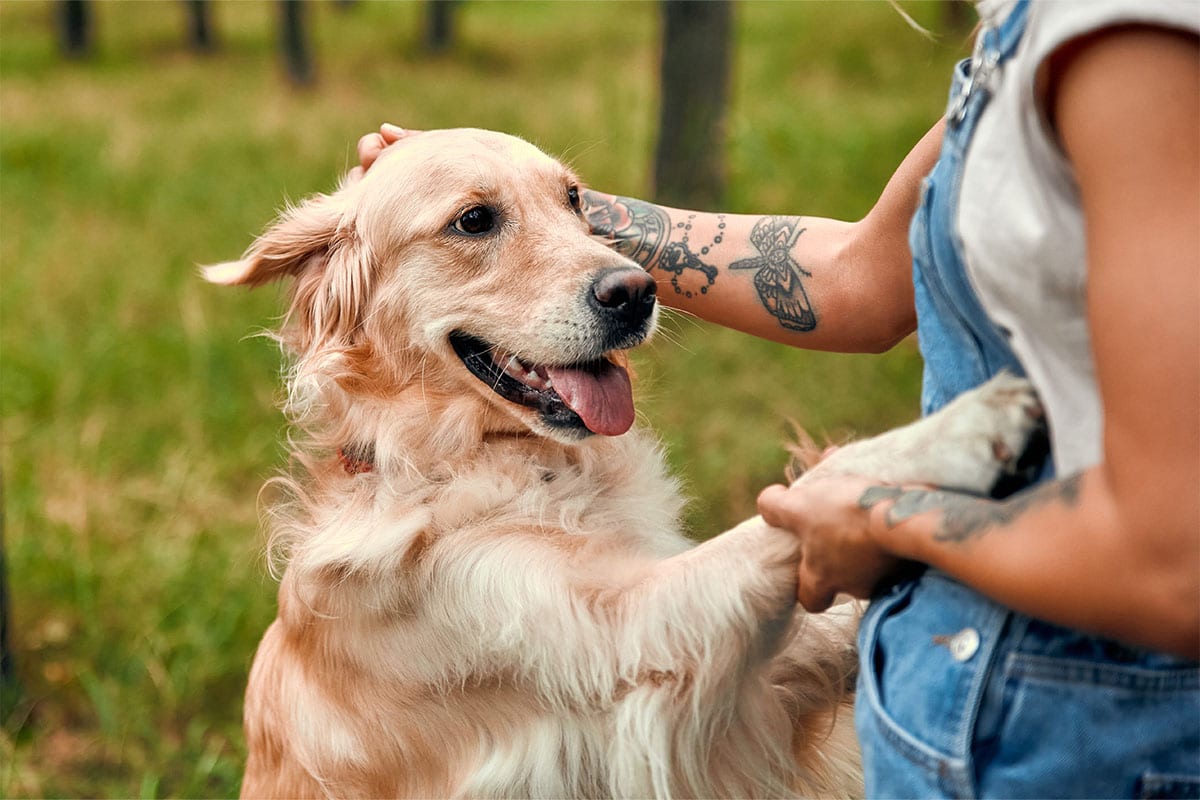
Shutterstock
Yes, even over food. In experiments where dogs could choose between a treat or their human’s scent, many picked the human. That may sound simple, but for a creature who normally drools at the sound of a crinkling bag, it’s a huge deal. This kind of loyalty speaks to the emotional value they place on you. Basically, you’re better than bacon.
They Can Sense Your Emotions and Adjust Their Behavior

Shutterstock
Dogs aren’t just loyal—they’re emotionally intelligent. They can detect when you’re sad, anxious, or happy and adjust their behavior accordingly. Many will cuddle up to you during tough times or become more playful when you’re in a good mood. It’s like having a built-in emotional thermostat with fur and four legs. Their loyalty makes them want to match your vibe—and lift it if needed.

Shutterstock
That loving gaze your dog gives you? It’s chemically bonding. Studies have shown that when dogs make eye contact with their owners, both experience a boost in oxytocin, the “love hormone” also released during hugs and bonding moments in humans. It’s not just cute—it’s literally love. No wonder your dog stares at you like you’re the star of a romantic drama.
Dogs Can Grieve When Separated From Their Owners

Shutterstock
When separated from their humans for long periods, many dogs show signs of grief. They may lose their appetite, become withdrawn, or even vocalize distress. This reaction is more than simple anxiety—it’s a genuine emotional response to losing someone they care about. Their attachment goes so deep that absence really does make the heart grow lonelier. It’s the ultimate long-distance relationship.
Dogs Will Put Themselves in Danger for You
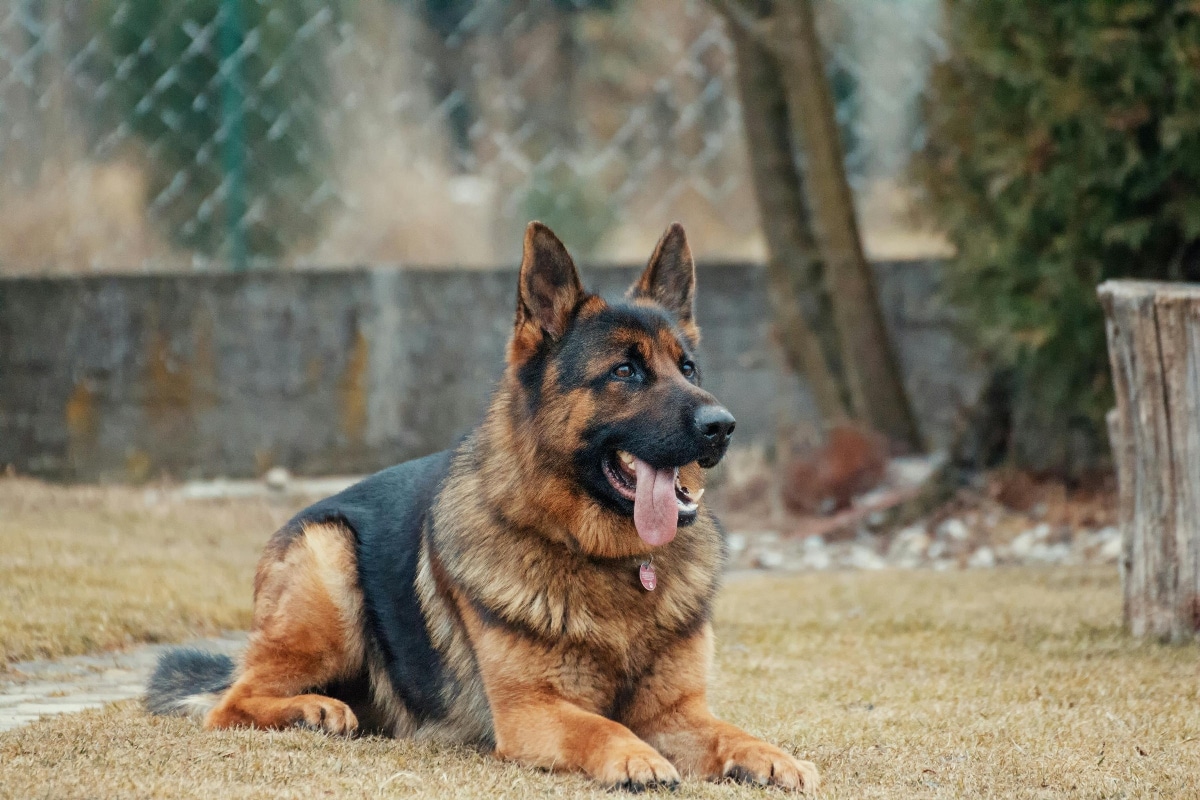
Shutterstock
Stories of dogs protecting their humans from intruders, wild animals, or fires aren’t rare—they’re surprisingly common. Even small breeds have shown bravery that far outweighs their size. That protective instinct comes from their deep loyalty and strong pack mentality. You’re part of their pack, and they’ll defend you with everything they have—even if that means charging a bear armed with only bark and bravado.
They Follow You Everywhere for a Reason

Shutterstock
That constant shadow at your feet? It’s not just separation anxiety—it’s a sign of deep devotion. Dogs follow their humans because they see them as leaders, companions, and emotional anchors. Your presence brings them comfort and safety, so naturally, they’d rather be where you are. Including, yes, the bathroom. They don’t understand doors; they understand loyalty.
Loyalty Can Be Strengthened Through Shared Routines

Shutterstock
Dogs thrive on routine, and sharing consistent activities—like daily walks, meals, and playtime—builds a deeper bond over time. These rituals reinforce your role in their lives and make them feel more secure and connected. The more you show up for them, the more tightly they’ll cling to you—figuratively and literally. Think of it as love with a leash attached.
They Can Tell When You’re in Trouble

Shutterstock
Whether it’s detecting a seizure, responding to a fall, or simply noticing when you’re emotionally distressed, dogs are often the first to know when something’s wrong. Loyal dogs don’t just notice—they act. Some are even trained to alert others or fetch help when needed. But even without training, many instinctively try to comfort or protect their humans.
Dogs Have Been Known to Travel Great Distances to Return to Their Humans

Shutterstock
There are jaw-dropping cases of dogs walking hundreds of miles to return to their owners after getting lost or left behind. How they manage this feat of loyalty and navigation is still partly a mystery, but the motivation is clear—they just want to go home. Forget GPS; love is their compass. And apparently, they don’t believe in giving up.
Dogs Form Deep Bonds With Children and Will Often “Guard” Them

Shutterstock
Many dogs form incredibly strong attachments to the youngest members of their pack—your kids. They’ll follow them, sleep near them, and even place themselves between the child and perceived danger. Their loyalty often turns them into furry babysitters with a strong sense of duty. It’s adorable—and incredibly reassuring.
Rescue Dogs Often Display Fierce Loyalty to Their New Owners

Shutterstock
Rescued dogs often form especially strong bonds with the people who saved them. They seem to understand the second chance they’ve been given and repay it with love, protectiveness, and lifelong devotion. Their loyalty becomes their love language. You gave them a new life, and now they never want to leave your side, ever again.
They Don’t Care About Your Flaws

Shutterstock
You can forget your keys, burn the toast, or wear mismatched socks all week—your dog will still think you’re amazing. Their loyalty is unconditional, not performance-based. You don’t have to impress them. You just have to be you. That kind of acceptance is hard to find anywhere else, except maybe in sweatpants.
Dogs Remember Acts of Kindness—and Repay Them

Shutterstock
Dogs have strong associative memories, meaning they remember who treated them kindly or cruelly. If you care for a dog, show them love, and treat them well, they remember, and it shapes their loyalty. They’re not just loyal because they’re dogs; they’re loyal because they choose to be. It’s emotional karma in action.
The Soft-Furred Security Team That’ll Ruin You (Emotionally)
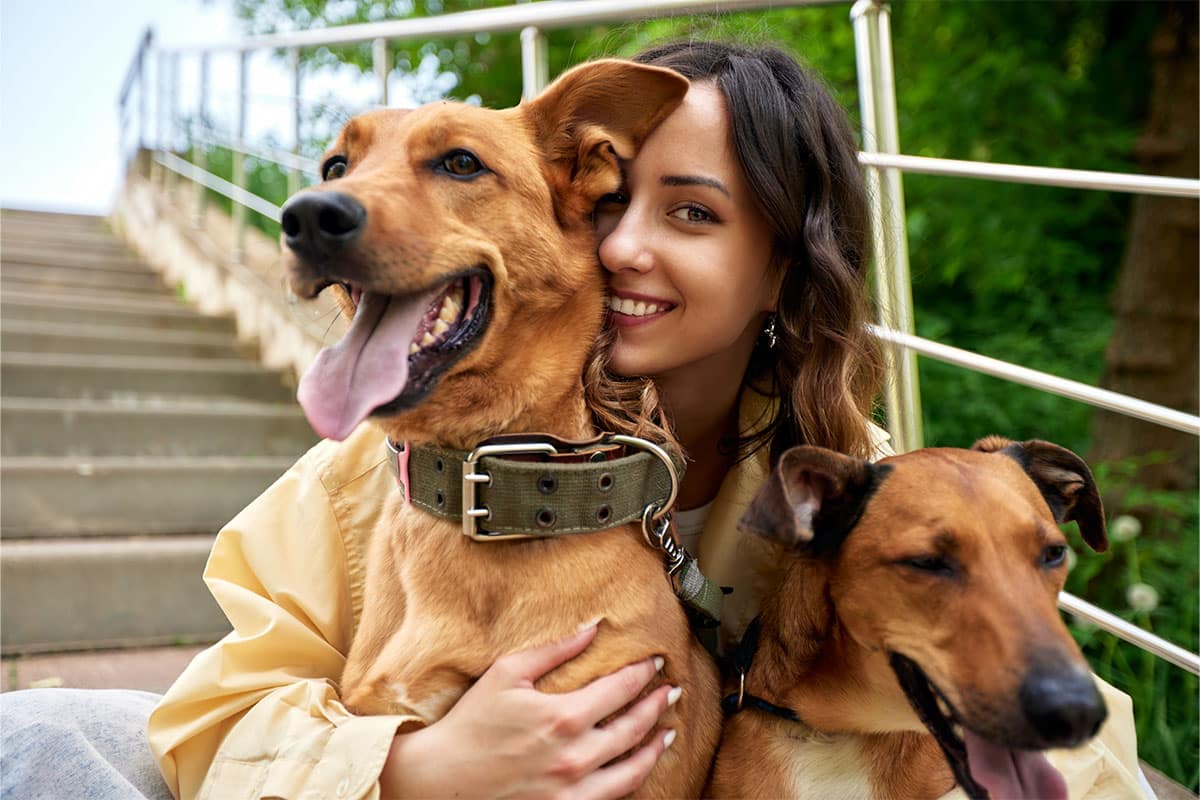
Shutterstock
From their devoted stares to their heroic instincts and obsessive bathroom following, dogs are loyalty experts in fur coats. They don’t just like you—they practically worship you and think you invented snacks and sunshine. Their love is all-consuming, heartwarming, and occasionally sock-missing, but always pure. Once a dog decides you’re their person, there’s no turning back. So buckle up for a lifetime of emotional overload, unconditional love, and the kind of loyalty that ruins you (in the best way) for every other relationship—human or otherwise.







![[5G & 2.4G] 2K Indoor Security Camera for Home Security, AI Voice Change for 2-Way Talk, Motion Detection, Night Vision, 24/7 SD Recording/Cloud Storage, WiFi Home Camera, Pet Cam with Phone App](https://i3.wp.com/m.media-amazon.com/images/I/61I2U+sTT3L._AC_SL1500_.jpg?w=300&resize=300,300&ssl=1)




